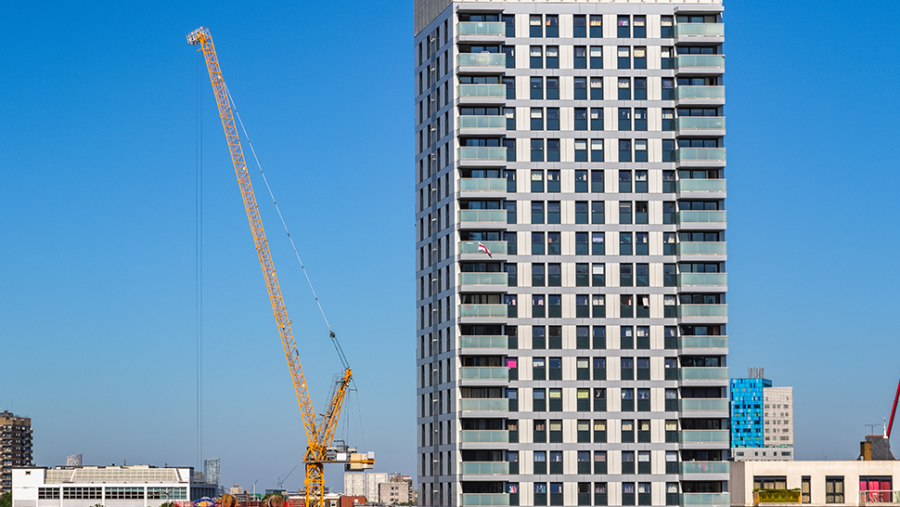
Permitted development rights lost when building works are unlawful – even if carried out after prior approval
14 December 2020

Permitted development rights do not apply to unlawful building works and uses. The recent case of RSBS Developments Ltd v SSHCLG [2020] clarifies that such rights will be lost even if the unlawful works are carried out after prior approval.
Facts of the RSBS Developments Case
The case of RSBS Developments Ltd v Secretary of State for Housing, Communities And Local Government & Anor [2020] EWHC 3077 (Admin) concerned Class O permitted development allowing change of use from office to residential use under the Town and Country Planning (General Permitted Development) (England) Order 2015 (“GPDO”).
The key events in the case were as follows:
- On 14 August 2015 the Council granted prior approval for the change of use of the RSBS Developments’ building from office use to 16 residential flats;
- On 23 November 2015 and before completing the residential conversion, planning permission was granted for a first floor extension to the existing single storey extension at the rear of the building. The accompanying informative stated that the additional space could only be used for office use, and the permission could not be implemented in conjunction with the works that were the subject of the prior approval application;
- Despite the warning in the informative to the planning permission for the extension, RSBS Developments carried out both the residential conversion and the office extension works. The residential conversion of the building differed from the layout plans submitted with the prior approval application, and referred to in the Decision Notice, as two of the flats incorporated floor space provided by the new extension;
- Between mid-February 2016 and 18 June 2016 the change of use from office to residential use of the extended building took place;
- In December 2016, RSBS Developments removed the first floor extension and in June/July 2017 they reduced the size of the ground floor to approximately its original size. There was no planning permission for any of these works (“the unlawful works”);
- On 4 August 2017 the Council introduced an Article 4 GPDO direction which removed the Class O permitted development rights for the conversion of office buildings to residential use; and
- On 29 March 2019 the Council issued an enforcement notice and RSBS Development’s subsequent appeal was dismissed.
Judgement
The main issue before the Court was whether the Inspector was correct to find that Article 3(5) of the GPDO was engaged on the facts such that the Class O permitted development rights were lost due to the subsequent unlawful works before the permitted change of use had completed in accordance with the approved plans pursuant to the prior approval.
Article 3(5) provides as follows:
“(5) The permission granted by Schedule 2 does not apply if— (a) in the case of permission granted in connection with an existing building, the building operations involved in the construction of that building are unlawful; (b) in the case of permission granted in connection with an existing use, that use is unlawful.”
The Court dismissed the judicial review and found that Article 3(5) was engaged and the Class O permitted development rights were lost. In particular it was noted that:
- The use of the word “granted” in Article 3(5) envisages that the permission may already have been granted. Therefore, the permitted development rights could still be lost despite the unlawful works being carried out, and/or discovered, after prior approval is granted by the Council;
- The phrase “in connection with a building” is broad in its scope and could include permission for a change of use which was in connection with a building. Class O expressly states that it applies to a proposed change of use “of an existing building”, together with any land within the curtilage of that building;
- If the building operations involved in the construction of any part of that building are unlawful, the permitted development rights granted in connection with the existing building do not apply;
- Once unauthorised works are removed and/or regularised, Article 3(5)(a) is no longer engaged and permitted development rights would, once again, be capable of applying (assuming no article 4 direction has removed them); and
- Any remedial works to rectify the unauthorised works cannot retrospectively implement the earlier prior approval. In this case, the reinstatement of the building to its original form cannot retrospectively implement the prior approval for the material change of use of the premises from office to residential.
Lesson
In order to begin permitted development rights it is crucial that no unauthorised works are carried out. In the case of applications for prior approval this is both before and after it is granted. Such unauthorised works will remove the permitted development rights and prevent their implementation. You will be back to square one.










